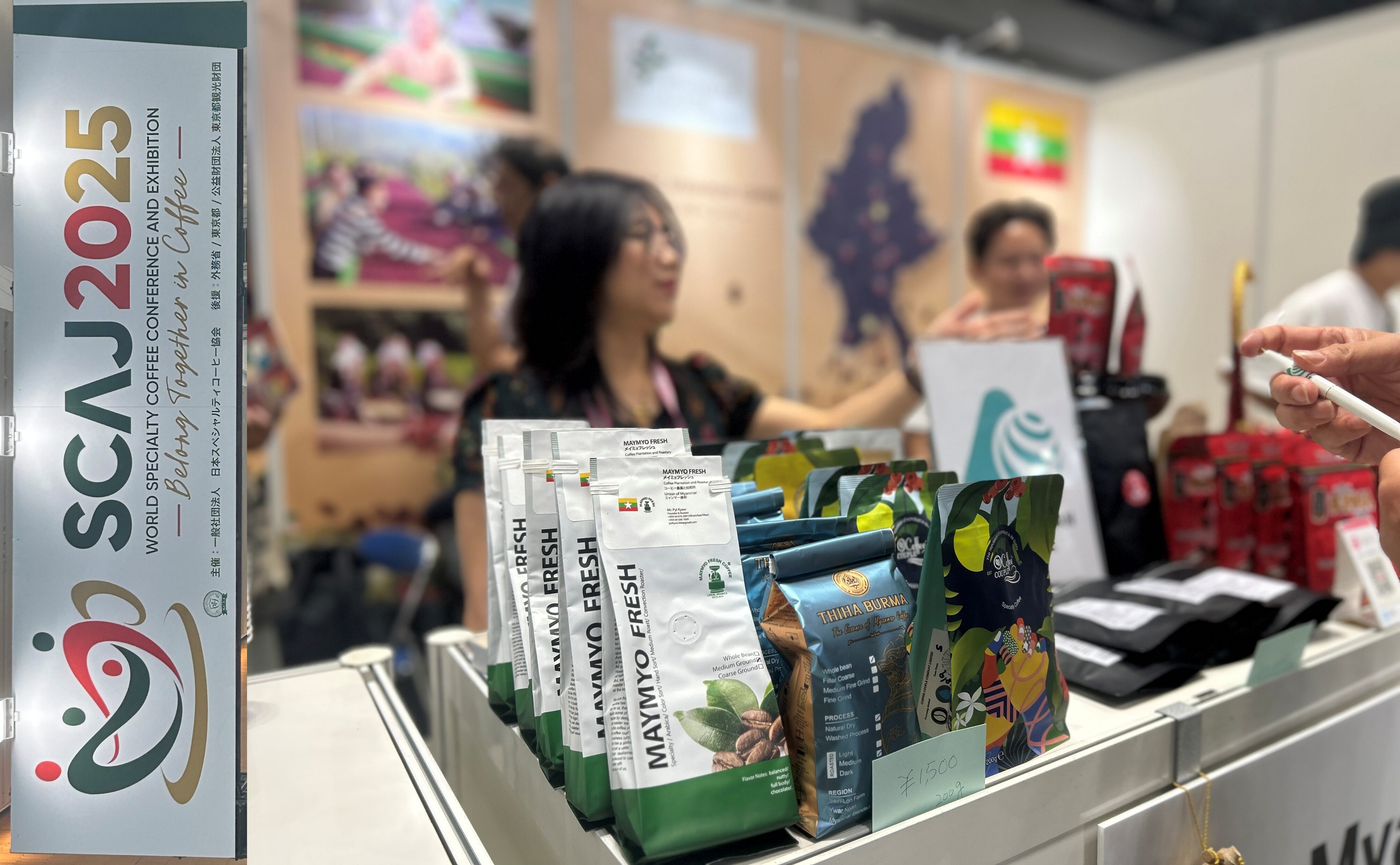Executive Summary
The ASEAN-Japan Centre (AJC), in collaboration with the Embassy of Myanmar in Tokyo, supported Myanmar’s participation in the SCAJ World Specialty Coffee Conference & Exhibition 2025, held on 24–27 September at Tokyo Big Sight.
The Myanmar Pavilion featured premium Arabica beans and roasted coffee from seven Myanmar coffee businesses, showcasing the country’s growing capabilities in the specialty coffee sector. Over four days, Myanmar exhibitors actively engaged with over 700 visitors and 37 buyer engagements Japanese roasters, importers, café operators, and specialty retailers, exploring new pathways for business collaboration and market expansion.
The expert briefing moved participants beyond introductions to substantive conversations about flavor, processing, traceability, and brand identity for a new origin seeking recognition in Japan’s premium market.

Elevating Myanmar Coffee’s Market Readiness
With AJC’s facilitation, Ms. Yuki Onishi, a Japanese specialty coffee importer and market expert, shared perspectives on Japan’s specialty landscape, buyer trends, and what it takes for a new origin like Myanmar to succeed.
Across the pavilion, exhibitors highlighted high-altitude terroirs, dry-climate processing, and a bright acidity profile that can stand apart in pour-over-centric Japan. Ms. Onishi’s core message was clear: Japan’s specialty market is mature and competitive; quality and consistency are non-negotiable. Novel processing (e.g., honey, anaerobic, experimental) earns interest only when paired with traceability, credible sustainability signals, and Japan-language materials that make cupping data, farm practices, and producer stories easy to evaluate. Myanmar’s high-altitude terroir, dry-climate processing, and bright acidity can differentiate—if paired with traceability, clear storytelling (JP materials), and consistent cupping results.
She also emphasized that Myanmar coffee needs a strong, unique brand identity and slogan to distinguish it from better-known origins like Ethiopia, Colombia, or Indonesia. Without clear positioning, even high-quality beans can struggle to attract attention in such a saturated market.

From Dialogue to Action: Recommended Next Steps for Myanmar Producers
- Branding: Develop a collective Myanmar-origin identity and slogan; highlight high-altitude, small-batch, farmer-focused production.
- Japan-language collateral: Invest in concise promotional materials—producer one-pagers, cupping summaries, and QR-linked traceability pages that buyers can review quickly.
- Partnership marketing: Pursue joint marketing with Japanese partners—such as known roasters or regional alcohol makers—to build visibility and trust.
- Prioritize direct partnerships with boutique roasters, who are more flexible and open to new origins.
These insights from the expert dialogue were well-received by Myanmar participants and will help shape future promotion, packaging development, and buyer engagement strategies.


Myanmar Specialty Coffee at the Myanmar Pavilion, SCAJ 2025
Conclusion
Myanmar’s focused presence at SCAJ 2025 translated curiosity into concrete buyer interest, 700+ visitors and 37 buyer-level conversations, while clarifying what Japan’s market expects: repeatable quality, traceability, and clear Japan-language storytelling. With a stronger collective brand and consistent documentation, Myanmar coffee can turn this momentum into first pilot imports and longer-term partnerships.


